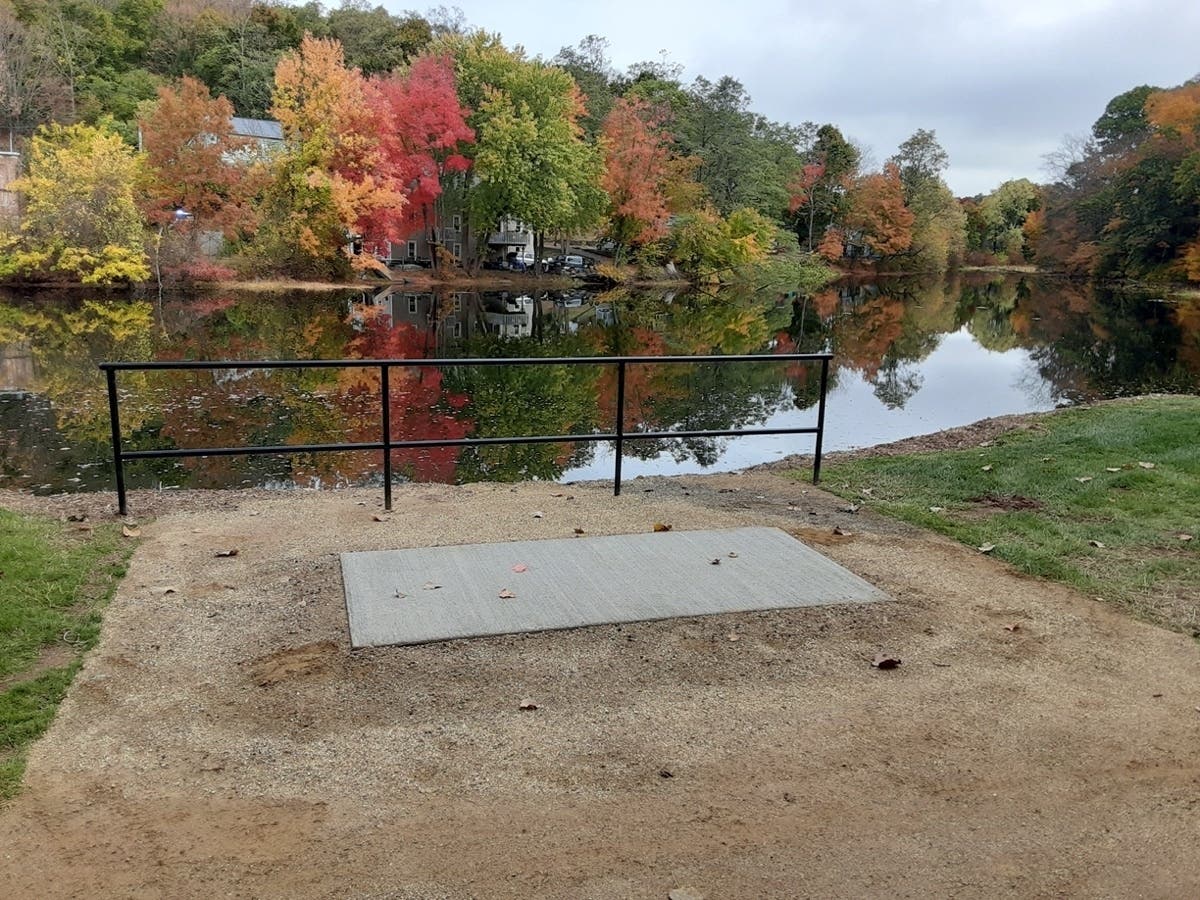Health & Fitness
CT Officials Issue Fish Consumption Advisory For Hockanum River
Connecticut officials have issued a "consumption advisory" for fish caught in the Hockanum River and added the reservoir is safe.

HARTFORD, CT — The Connecticut Department of Public Health and the Department of Energy and Environmental Protection Friday issued a "consumption advisory" for fish caught in the Hockanum River.
The advisory is based on elevated levels of per- and polyfluorinated alkyl substances, or PFAS, in fish tissue samples collected from the Hockanum River in Vernon.
Based on locations identified by DEEP, the DPH is recommending not eating fish from:
Find out what's happening in Vernonwith free, real-time updates from Patch.
- The Hockanum River starting below the Shenipsit Lake dam (Tolland Avenue in Vernon) to the Connecticut River, including the riverine impoundments of Papermill Pond (including Pitney Park, in Vernon)
- Union Pond in Manchester
- Several small impoundments or ponds on the Hockanum River (East Hartford)
- The Tankerhoosen River (from the Hockanum River upstream to the dam at Main Street)
The Hockanum River and its tributaries are located in the towns of Vernon, Manchester, Ellington and East Hartford.
DPH officials said they are working closely with the DEEP, which determined the locations where the fish advisory has been based on their fisheries expertise and knowledge of the case details.
Find out what's happening in Vernonwith free, real-time updates from Patch.
Surface water samples collected with fish tissue in Vernon below Shenipsit Lake met drinking water guidelines, officials said.
The advisory does not apply to Shenipsit Lake, nor does it affect the public drinking water supply, officials said.
Connecticut Water officials released the following statement:
"Shenipsit Lake Reservoir is upstream of the Hockanum and is not affected by the “Do Not Eat Fish” order issued by DPH and DEEP. The agencies’ order does not apply to fish in Shenipsit Lake and does not affect the planned opening of the Shenipsit Lake recreation program this Saturday, April 9.
"Connecticut Water tested the water produced by and delivered to customers from the Rockville Drinking Water Treatment Facility for PFAS in 2019 and no detectable levels of PFAS were found. There is robust treatment technology at that facility designed to meet state and federal drinking water quality standards.
"Further, a study of land use in the watershed area of the Shenipsit Lake conducted in 2019 did not identify any land use activities that are typically associated with PFAs. The company owns nearly 1,300 acres of pristine watershed land and conducts regular watershed inspections to protect the drinking water source. However, there have been a number of documented uses along the Hockanum River south of the Shenipsit Lake that could be potential sources of PFAs.
"Out of an abundance of caution, and to give customers additional confidence, Connecticut Water has conducted additional PFAS sampling and testing of the water within Shenipsit Lake Reservoir and from the water delivered from the Rockville treatment facility and results are expected early next week."
State officials said the last drinking water sample collected by Connecticut Water Company showed no PFAS above laboratory limits, officials said. The fish consumption advisory is based on fish tissue results recently received and validated. Fish samples were collected in September 2021 in Vernon, between Route 74 and Dart Hill Road. In total, 30 fish representing three species—American Eel, Fallfish and White Sucker—were analyzed for PFAS concentrations, officials said. Tissue samples showed PFAS at concentrations above levels considered by DPH to be safe for human consumption. PFAS concentrations in White Sucker were somewhat lower than the other species tested, officials said.
The advisory is based on a limited sample size and is issued with an "abundance of caution," officials said.
The Hockanum River statistics were compiled by a consultant retained by the DEEP as part of a large, statewide study to evaluate the presence of PFAS in the state's waste receiving waters.
The study was initiated in response to the Governor's Interagency PFAS Action Plan, which recommended evaluating PFAS levels in fish harvested from Connecticut waters. The study is ongoing, with final results expected by the end of 2022. DEEP officials said the agency plans to conduct additional monitoring along the Hockanum River to better understand the water quality conditions and potential sources of the PFAS.
DPH and DEEP officials emphasized that while fish in the Hockanum River are not safe for consumption, recreational activities such as catch-and-release fishing and boating are safe.
The DEEP stocked the Hockanum River with 2,059 trout earlier this spring (March 4 and 23) before receiving the data showing elevated PFAS levels in river fish in the area.
"Anglers are strongly encouraged to either strictly practice catch-and-release fishing in the areas subject to this advisory, or to fish in other nearby waterbodies also stocked with trout," officials said. "These locations can be viewed on the DEEP interactive trout stocking map www.ct.gov/deep/troutstockingmaps. No additional stocking of trout will occur in the Hockanum River or lower Tankerhoosen River this spring."
The Manchester Health Department, North Central Health Department, and the East Hartford Health Department are posting signs along the Hockanum River and at each of the locations identified above to remind the public of the current advisory.
Long term exposure to PFAS may be associated with increased levels of cholesterol and liver enzymes, a change in immune response, an increased chance of high blood pressure and/or pre-eclampsia during pregnancy, and an increased chance of thyroid disease, developmental defects, and cancer, especially kidney and testicular cancers.
Additional information on DPH fish consumption advisories can be found at: https://portal.ct.gov/fish or by calling a DPH staff member at 877-458-FISH (3474).
Get more local news delivered straight to your inbox. Sign up for free Patch newsletters and alerts.